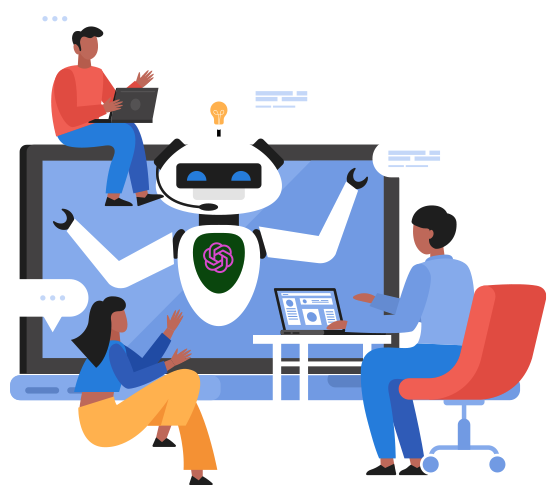
ChatGPT: Everything you need to know in 5 minutes
ChatGPT is an Artificial Intelligence (AI) chatbot developed by private company OpenAI that allows you to have human-like conversations and much more. Chatbots like ChatGPT are powered by large amounts of data and computing techniques to make predictions to string words together in a meaningful way. This means, it can respond in a human-like manner and can do anything from answering questions to drafting articles (this one isn’t written by ChatGPT). ChatGPT is a gamechanger in the world of AI, and we are learning all its functionalities.
For example, ChatGPT can:
- Generate and brainstorm content ideas
- Write essays or emails
- Explain complicated topics in easy terms
- Find security issues in your code
- Summarize latest research
Top 5 Cyber Security Risks
-
Write Malicious Code
Writing code will be one of the most prominent ChatGPT security risks as it can be used by malicious hackers to create low-level cyber tools like encryption scripts and malware.
-
Phishing Emails without Typos
It can help to eliminate the normal tell-tale signs of a phishing attack that users usually look out for (i.e., grammatical mistakes, etc.).
-
Malware Infections
ChatGPT can be infected with malicious code through user input or downloads from third-party sources, as is the case with any software platform.
-
Brute Force Attacks
Allows threat actors to become more efficient by using ChatGPT for certain elements of the attack process, such as reconnaissance and brute force capabilities.
-
Privacy and Confidentiality
Did you know? Providing any personal data to ChatGPT opens the possibility that the data could be re-used by ChatGPT, potentially resulting in misuse and reputational harm or leakage of sensitive information.
Being Cyber Aware

It is important to be aware of the cyber security dangers of using ChatGPT. Although OpenAI has their Moderation Application Programming Interface (API) that restricts the chatbot from responding to harmful requests, users can bypass it by manipulating their inputs in a convincing way (i.e., provide a conversation about a banned content). To add, despite generating instant responses, ChatGPT has been proven to provide incorrect or incomplete information which puts fault in its accuracy.
 Cyber Measures to Take
Cyber Measures to Take
Given the apparent issues that ChatGPT poses to cyber security, it is our responsibility to safeguard against these attacks. Here are some tips to stay cyber safe:
- Report any suspicious emails and do not click on any email links or attachments.
-
Do not share your work-related or personal sensitive information with
ChatGPT as data could be re-used for other purposes, resulting in
misuse and potential or actual reputational harm.
- The AI tool trains itself based on the information/input it is given which leads to retaining sensitive information.
- Ensure that any outputs created by ChatGPT go under human verification before adoption.
- Stay on top of the latest targeted spear-phishing and other phishing scams by checking out our Social Engineering page on the Cyber Security Ontario Learning Portal.
![]() For more information, visit the
Artificial Intelligence (AI) Guidance site.
For more information, visit the
Artificial Intelligence (AI) Guidance site.

